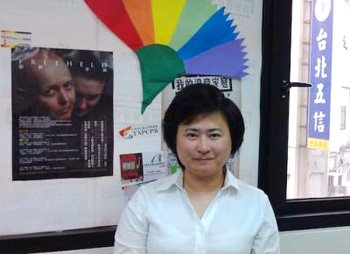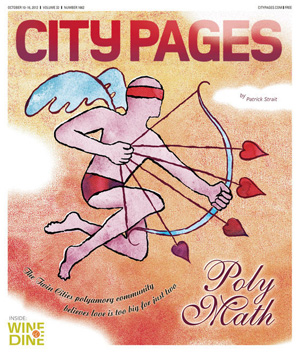How does one find childrens' books and media that do not follow the stereotype of "happily ever after" monogamy? Technogeisha wrote a post at Life on the Swingset about her struggle educating her children about alternative relationship models:
We have been trying to keep the standard narrative driven drivel to a minimum since the birth of our first. It was easier in the early years then the real challenge began in preschool. The other little girls had been fed a non-stop diet of "Someday my prince will come." which our daughter decided to embrace wholeheartedly. A couple of years later a similar thing would happen to our son.
Once they entered school, gender roles were assigned and adhered to. So was the notion of dyadic relationships with the inevitable "first comes love, then comes marriage, the comes the baby in the baby carriage." It wasn't enough to tell them this wasn't the only option in life. I needed backup. I needed to come up with resources that go against the standard narrative and offer positive views on non-traditional families and relationships. It was difficult to find but I found a few alternatives.
Although it can be hard to find books, TV shows, and movies featuring non-traditional (and especially non-monogamous) families, Technogeisha rounds up some great suggestions. She first recommends books focused on LGBT families, then lists a few with subtle poly themes, such as Else-Marie and Her Seven Little Daddies, Six Dinner Sid, and the story "The Little House That Ran Away from Home" from Strange Stories for Strange Kids.
She also mentions some books for young adult readers, books with themes of self-acceptance and favoritism, and a few movies and TV shows.
Read the whole post at Life on the Swingset.

 Victoria Hsu, lawyer and president of the Taiwan Alliance to Promote Civil Partnership Rights (TAPCPR), is collecting signatures on
Victoria Hsu, lawyer and president of the Taiwan Alliance to Promote Civil Partnership Rights (TAPCPR), is collecting signatures on 
 City Pages, a Minneapolis/St. Paul alternative paper, not only wrote about polyamory -- they
City Pages, a Minneapolis/St. Paul alternative paper, not only wrote about polyamory -- they